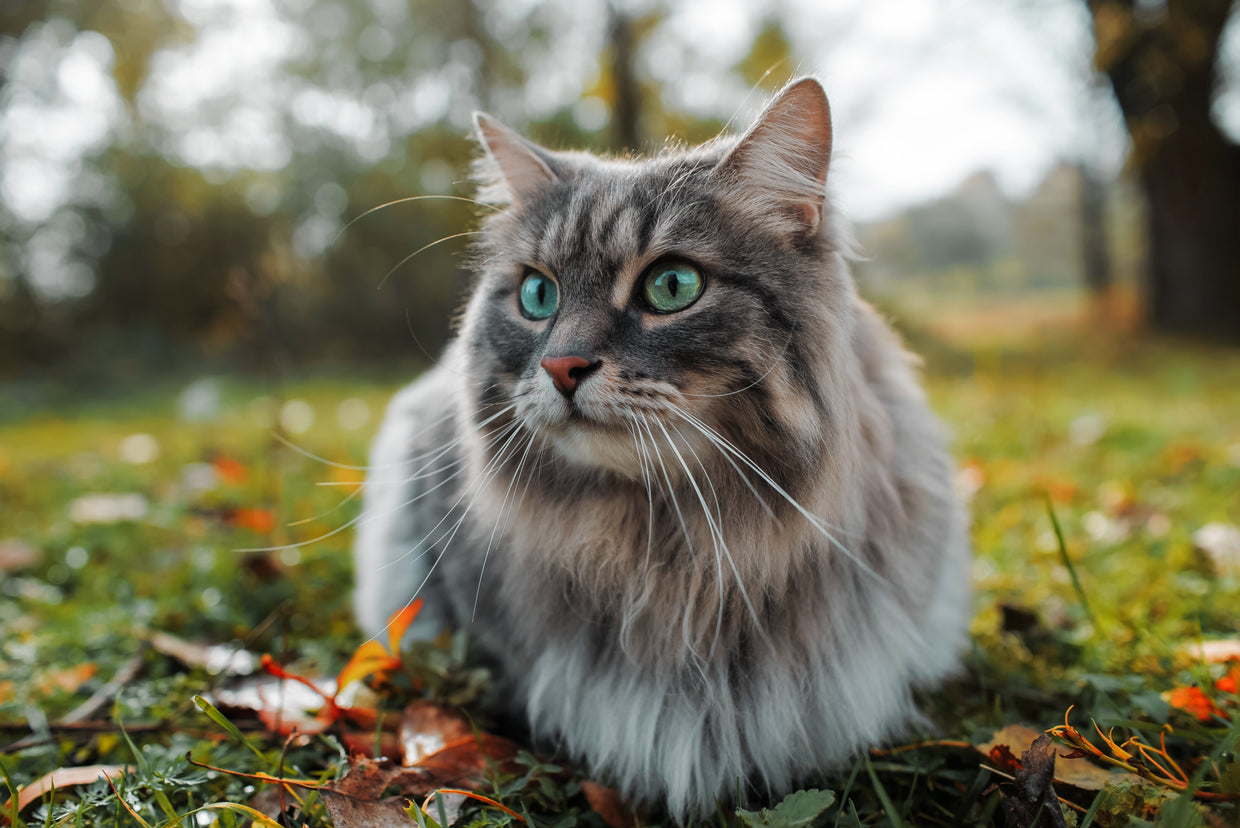

Common skin problems in cats
Cats are widely known for their grace, elegance, and poise – that regal way they walk through the home surveying their domain, and (at least for many breeds) their luscious and immaculate coats.
Unfortunately, there are a number of things that can cause a cat’s coat to lose some of its majestic lustre, and that can affect the health of their skin.
Here's a look at some of the common causes of skin problems in cats, how you can spot them as they’re developing and what you should do if you notice the tell-tale signs.
Acne
Far from just being a human condition, acne is something that can affect our cats, too – although it manifests somewhat differently in them.
Feline acne isn’t fully understood, but it may occur due to disorders of the skin tissue, or as a result of a suppressed immune system. This can result in blackheads, red bumps and infected pimple-like lesions.
Cats are most likely to have acne around the chin area, with the acne itself looking like black dots, red bumps, or dirt on their chin. It’s possible for a cat to experience just one bout of acne, or for it to be a chronic and recurring condition.
Acne can affect both male and female cats regardless of whether they’ve been spayed or neutered, and can occur at any age.
It’s important that you never scratch or pick at your cat’s acne. Instead, take them to the vet. Your vet will be able to prescribe treatment – which may include antibiotics and medicated shampoo – and can advise you on how to help keep your cat’s skin healthy with maintenance cleanings and treatments.

Mange (parasitic mites)
Mange causes cats to experience chronic skin itching and irritation, along with flaking, inflammation, and hair loss. But it’s not actually a disease. In fact, it’s caused by parasitic mites that infest your cat’s skin.
Mange isn’t very common in cats, but it can be highly contagious and debilitating, so if you suspect that your cat may be affected, it’s important to get them seen to by a vet as soon as possible.
Although not the same as mange, other parasites such as fleas and ticks can cause your cat’s skin to become irritated and may cause them to scratch excessively and overgroom. It’s also worth mentioning that flea allergies in cats can result in flea bites becoming more irritating and leading to more inflammation than would normally occur.
Allergies
Although allergies may also seem like the kinds of things only humans have to worry about, the fact of the matter is that they can affect our animal companions too, and cats are certainly no exception.
Cats can experience a range of different allergies, from allergies to environmental triggers – such as pollen, grass and certain plants, mould, mildew, and dust – to allergies to foods like beef, chicken, fish, and dairy – and even allergies to flea bites.
While cats can display many different symptoms in response to allergies, their fur and skin are very often affected.
Cat allergy symptoms that affect the skin can include…
- Inflamed and itchy skin
- Lost fur and skin irritation due to over-grooming
- Skin infections
Talking to your vet about the appropriate cat allergy treatment can help to alleviate these symptoms, so don’t hesitate to make an appointment. Cat skin & moulting care oil can always provide support for your cats skin.

Overgrooming
One of the most iconic of all cat behaviours is their tendency to groom themselves meticulously, by licking, pawing at and rubbing their coats.
Normally, this helps to keep them clean and healthy – but if something causes them to overgroom, they can end up irritating their skin and losing fur or exacerbating existing skin irritation.
Overgrooming commonly occurs in response to itching and skin irritation (often because of allergies), but your cat may also overgroom as a coping mechanism for stress.
If your cat appears to be grooming themselves excessively, talk to your vet. They can evaluate the cause of your cat’s overgrooming, advise on the best steps to investigate any underlying issues and prescribe medication if necessary.
What should you do if your cat has a skin problem?
The answer to this question – as with every pet health question – is to consult with your vet as soon as possible and to follow their recommendations. You can also read our guide on skincare tips for older cats.
Your vet will be able to inspect your cat and determine which skin condition they’re experiencing and can pinpoint the underlying causes. From there, they’ll be able to prescribe the right treatment to help your cat get back to living their best life. They’ll also be able to advise you on the right steps to take at home to help support your cat during their recovery, and to lessen the risk of future issues.



